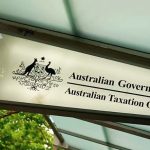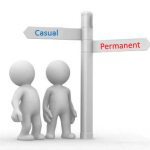November 2023 Newsletter
Contents:
- ATO flags small business tax debt, SG as key focus areas for FY23–24
- Staffing over the holiday season: What’s legal and what’s not?
- How your super will be taxed when you die
- Draft legislation for tax on members with more than $3m in super
- Employers are ‘oblivious’ to casual employee rights
- Are you paying tax by not starting a super pension?
- Announcements
ATO flags small business tax debt, SG as key focus areas for FY23–24
Addressing collectable debt and improving small business tax performance continue to be critical focus areas, the ATO warns in its annual report.The Tax Office has outlined that addressing collectable debt, improving small business tax performance and strengthening superannuation guarantee (SG) will be important focus areas in the ATO’s strategy for the remainder of the 2023–24 financial year.
Staffing over the holiday season: What’s legal and what’s not?
The holiday season is a time for many of us to unwind, but if you’re a small business owner, the festive season can bring a level of stress. Many businesses wind down over Christmas and New Year – and many employees plan to take leave because their workplace will shut.
Whether you’ll be open for business or not, how can you confidently navigate what you can and can’t legally do over the holiday season? We spoke to Sam Nottle, Senior Associate at employment law firm JewellHancock, to find out.
How your super will be taxed when you die
When this transfer of superannuation takes place, how much will go to your next of kin?
Draft legislation for tax on members with more than $3m in super
Fundamentally, the Government hasn’t moved from its original direction and so the deeply unpopular elements remain:
The mechanism for calculating the “earnings” that will be taxed is based on movement in a member’s total superannuation balance. By default, that will include unrealised capital gains.
No refunds in years when earnings are negative.
Employers are ‘oblivious’ to casual employee rights
Casual employees have been a key part of the Australian workforce since the 1980s. However, all these years on, casual employees tend to be unaware of their entitlements.
In 2022, twenty-three per cent of the Australian workforce was employed on a casual basis.
Despite this, according to the Australian Council of Trade Unions (ACTU), casual employees in Australia are paid $11.95 less per hour than permanent employees.
Are you paying tax by not starting a super pension?
Announcements:
This month we have no work anniversaries or birthday’s to acknowledge!Important ATO Dates
| Lodgement Program | Date |
| October monthly activity statements | 21/11/2023 |
| Quarter 1 (July–September) activity statements lodged electronically – final date for lodgment and payment | 28/11/2023 |
Other News
Office Closed
31 October Tax Deadline???
50% Pension Drawdown Ended 30 June 2023
| AGE AT 1 JULY EACH YEAR | MINIMUM DRAWDOWN RATES |
| Preservation age to 64 | 4% |
| 65 to 74 | 5% |
| 75 to 79 | 6% |
| 80 to 84 | 7% |
| 85 to 89 | 9% |
| 90 to 94 | 11% |
| 95 and over | 14% |
Automatic Refunds of Franking Credits
During tax time 2023, to make it easier to receive your refund the ATO will automatically refund franking credits to eligible individuals and issue them a notice of assessment. To do this they use information that is reported to them by share registries. Unless advised by the ATO, eligible people won’t need to separately apply for a refund of their franking credits.
Quarterly SMSF Reporting (TBAR)
This is a reminder to all Self Managed Superannuation Fund (SMSF) Trustees that you may be required to provide quarterly ‘Transfer Balance Account Reporting’ (TBAR) reports if certain events have occurred over the last quarter.
These events include:
- Starting a new retirement phase and/or death benefit income stream
- If you paid yourself a lump sum amount from your retirement phase income streams (in addition to your regular pension payment)
- Made payments under a limited recourse borrowing arrangement (LRBA) where the payment results in an increase in the value of the member’s interest that supports their retirement phase income stream
- Complied with a commutation authority issued by the Commissioner
- Received a personal injury (structured settlement) contribution
* Please note that regular pension payments do not need to be reported – see point 2 above! If you are unsure if any of these events have occurred, please contact your financial adviser for clarification.
If none of these events have occurred no action is required at this time but you may be affected in future quarters.
Please contact our office at your earliest convenience if anyone of the above events has occurred as we will lodge the TBAR report on your behalf by the lodgement date. Alternatively, please let us know if you would like to undertake this compliance requirement yourself.
If you have any further queries please contact our office!







